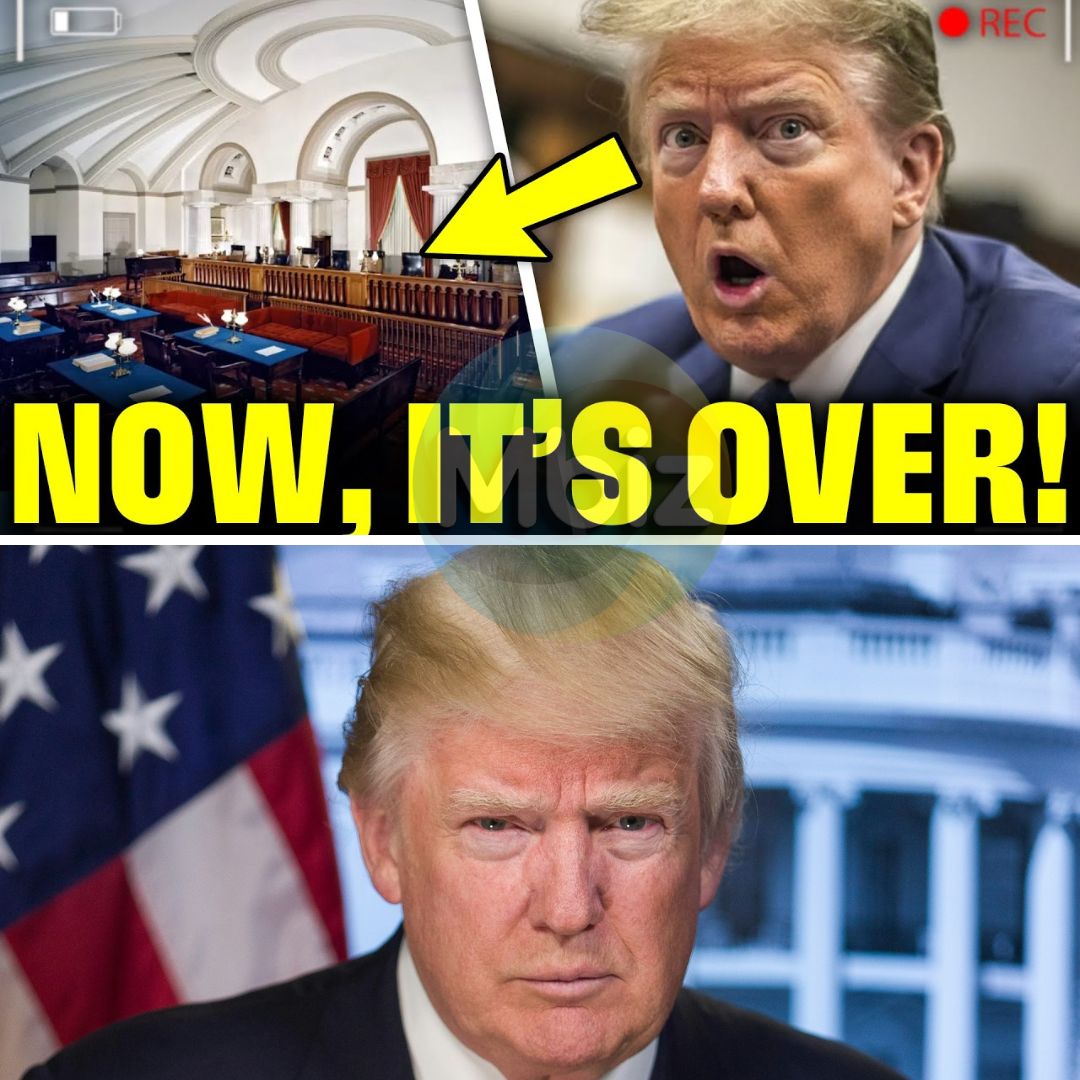Breaking News: US Supreme Court Delivers Stunning Blow to Trump Administration
 In a landmark ruling that could reshape the landscape of American governance, the US Supreme Court has decisively overturned a critical executive order from the Trump administration, striking a severe blow to the president’s authority. The Ninth Circuit Court of Appeals has lifted a prior injunction blocking the federalization of the National Guard, allowing President Trump to exert unprecedented control over state military forces—a power he has long sought to wield.
In a landmark ruling that could reshape the landscape of American governance, the US Supreme Court has decisively overturned a critical executive order from the Trump administration, striking a severe blow to the president’s authority. The Ninth Circuit Court of Appeals has lifted a prior injunction blocking the federalization of the National Guard, allowing President Trump to exert unprecedented control over state military forces—a power he has long sought to wield.
In a sweeping 7-2 decision, the Supreme Court has effectively dismantled the legal framework that has underpinned Trump’s presidency since its inception. Legal experts are calling this ruling one of the most significant rebukes of presidential power in decades. Chief Justice John Roberts, writing for the majority, stated unequivocally, “The Constitution does not grant any president the power to override Congress by proclamation.” This ruling is not merely a setback; it is a constitutional reset that challenges the very foundations of executive authority.

The implications of this ruling are immediate and profound. Within hours, federal agencies were thrown into chaos as they scrambled to assess which of Trump’s numerous executive orders remain valid. Nearly 30 departments found themselves frozen, forced to reassess their directives in light of the Court’s decision. This ruling has not just questioned Trump’s authority; it has shaken the very machinery of government, revealing the fragility of an administration that has consistently pushed the boundaries of executive power.
In a twist that few anticipated, three of the justices in the majority were appointed by Trump himself. This irony underscores the dramatic shift in the Court’s stance, as it moves to reassert the principle of separation of powers that Trump has long sought to undermine. For years, the Trump administration has operated under the belief that it could bypass Congress and govern unilaterally, a notion that has now been categorically rejected.
The ruling has sent shockwaves through Washington. Congressional Democrats hailed it as a victory for the rule of law, with Senate Majority Leader Chuck Schumer calling it “the most important judicial decision of the decade.” However, reactions among Republicans are mixed, with some viewing it as a necessary check on Trump’s overreach while others decry it as a betrayal of the MAGA agenda.
As the Trump administration grapples with the fallout, the Court’s ruling serves as a stark reminder that no president is above the law. The separation of powers, a cornerstone of American democracy, has been reaffirmed, setting a precedent that future administrations, regardless of party affiliation, will now have to navigate. This ruling is not just about Trump; it is about the future of executive power in the United States.
In a moment that could define a generation, the Supreme Court has drawn a line in the sand, signaling that the age of unchecked presidential authority may be coming to an end. The Constitution, once again, stands as the ultimate arbiter of power in America. The ramifications of this decision will echo through the halls of power for years to come, reshaping the relationship between the presidency and Congress and restoring balance to a system that has been dangerously out of alignment.
As the dust settles, one thing is clear: the era of executive overreach is facing a formidable challenge, and the Constitution remains the bedrock of American democracy. The coming days will reveal how the Trump administration responds to this unprecedented setback, but the message from the Supreme Court is unmistakable: accountability is back in vogue, and the rule of law reigns supreme.






